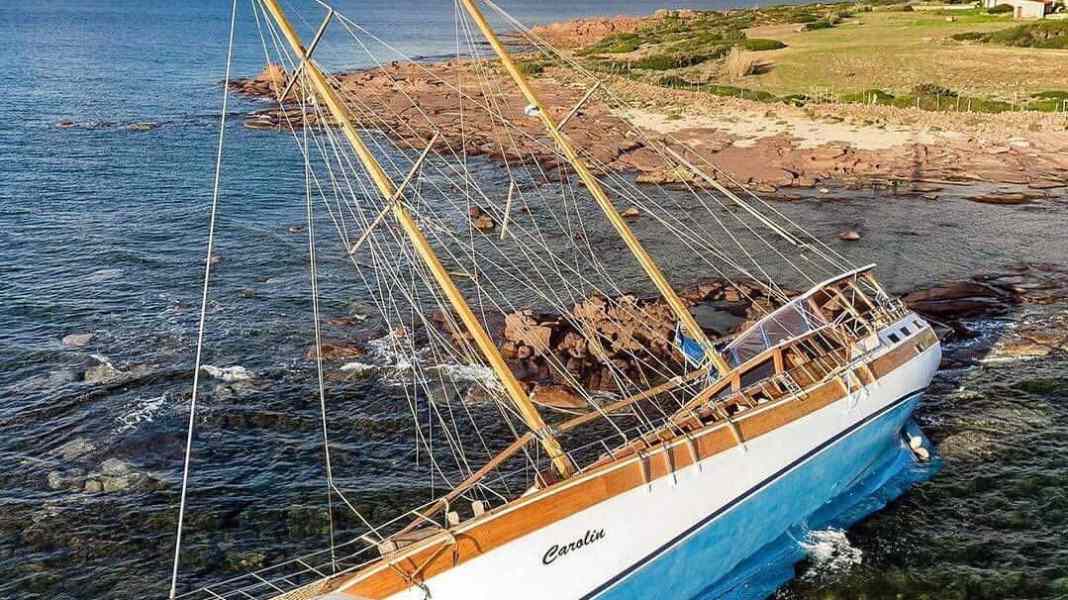
The German yacht "Carolin" hit the rocks near Calasetta on the island of Antioco off the coast of Sardinia. The ship belongs to an absolute great in German sailing, Jörg Diesch, 1976 Olympic champion in the Flying Dutchman with his brother Eckart as foreship. The man from Kiel confesses that he himself did not pay attention for a moment during a manoeuvre.

After retiring from professional life, the doctor devoted himself intensively to his boat, the Gület "Carolin", which is moored in Göcek, Turkey. The man who used to sweep across the regatta course as quickly as possible explains his choice of this unusual type of boat as follows: "I no longer want to arrive anywhere quickly. I want to enjoy the slowness." Almost 20 years ago, he saw a photo of a Gület in YACHT and thought: "That would be it." It may be sedate, but it's big, comfortable and cosy. The days when speed optimisation and upwind characteristics played a role were long gone. "I gave up racing a long time ago," says Diesch.
Over the years, the 26-metre-long ship from 1997 has certainly caused problems. Diesch wanted to take it on a long voyage across the Atlantic and then see what happened. But he didn't want to force anything, and when substantial difficulties arose with the hull and keel, he postponed the plans without rancour and enjoyed further seasons in the Mediterranean. "I'm happy," he said, "I don't want to do anything else."

This autumn, however, he was drawn westwards after all. The ship had been prepared in Bozborun in September, parts of the planking were renewed and the rudder reinforced. The "Carolin" finally reached Italy via Greece and the Corinth Canal. There, an anchoring attempt at Antioco went disastrously wrong.
The 65-year-old owner describes the course of the accident as follows: "I didn't look at the chart properly when recovering the sails and we ran aground. There was little wind, but the large waves had pushed us far onto the rocky shore within a few minutes, despite full throttle astern, so that towing free was no longer an option. We were high and dry with a 40 degree heel. The next morning, I brought out a line to the nearest rocks on the shore and we got ourselves ashore through the high surf."
Two days later, when the surf subsided, the crew retrieved equipment from on board, but some of the valuable items had already disappeared. After an internet appeal, the thieves returned at least two bags of electronics.
The ship is a "total loss", says Diesch, who is currently struggling with the Italian bureaucracy. Even reporting the accident to the police took countless hours, "hard to believe". And it is also still unclear how the salvage is to be organised. In any case, a deadline set by the harbour authority expired because it was not yet known whether the stranding area was a nature reserve, which could prohibit the use of heavy salvage equipment.
Despite the painful loss and the accompanying "sad and desolate thoughts", Diesch is already busy "planning a new ship". He consoles himself: "The Sardinians here say: what the sea takes from you, it gives back to you."
Note: An earlier version incorrectly stated that the accident occurred during preparations for an anchoring manoeuvre.
